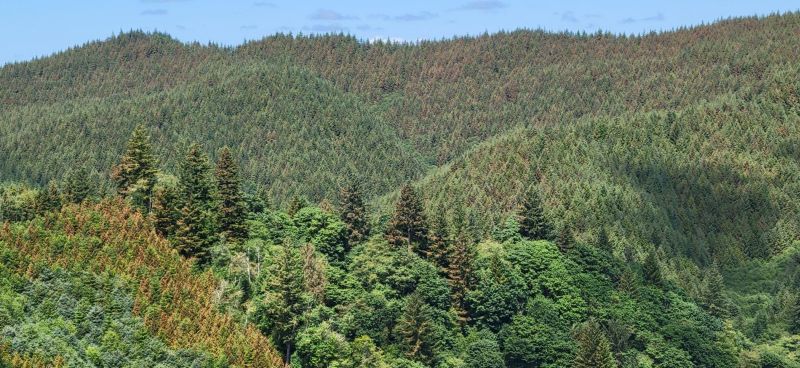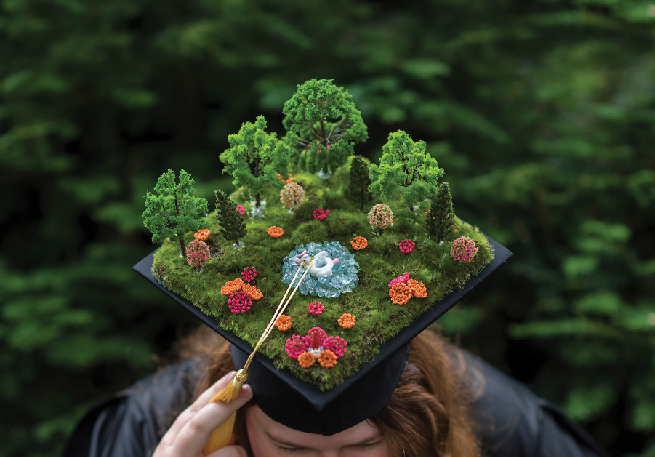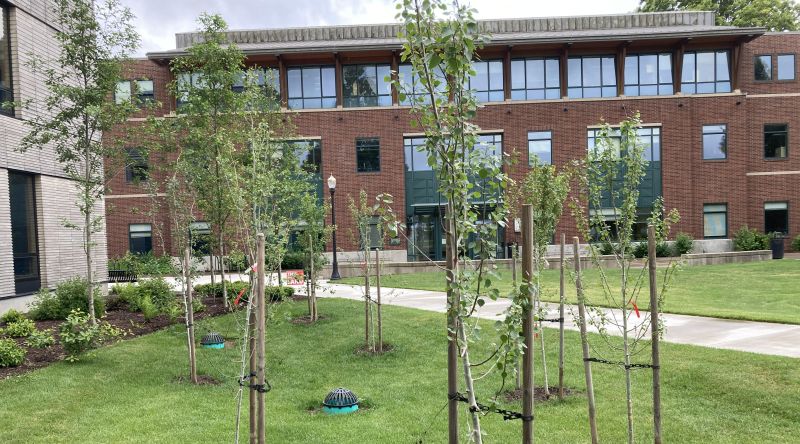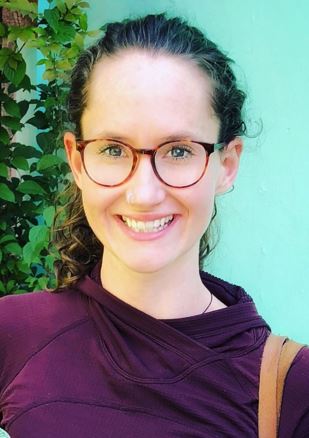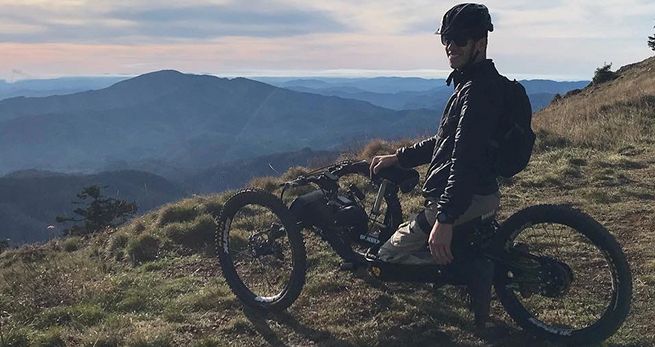
Trevor Denning, class of 2022, uses a wheelchair and loves the outdoors. But sometimes, those two worlds aren’t compatible. He wants to change that.
Denning is on a mission to make the outdoors more accessible to those with physical disabilities. He was inspired to pursue this goal after visiting Grand Teton National Park and realizing he wasn’t able to do as much as non-disabled people.
“The greatest barrier or obstacle to accessibility is the lack of knowledge about the vast amounts of disabilities that exist,” says Denning. “It is not a one shoe fits all type of problem to address.”
Most of the time, he says, the people making decisions about accessibility issues are not disabled and have no firsthand knowledge on how to make a state, local or national park accessible.
“I believe that there need to be more people that are disabled in these positions because they are the ones with the real-world experience and know what needs to change,” says Denning. “On many occasions, I have visited an area that is deemed ‘accessible,’ and in fact, it is not.”
Originally from Florence, Oregon, Denning is pursuing his bachelor’s degree in tourism, recreation and adventure leadership with a double minor in natural resources and leadership. Denning chose OSU because of the TRAL major, and also because of the welcoming community and college town feel of Corvallis.
“One of the best things about OSU is meeting so many students on campus that come from diverse backgrounds such as international students, military and veteran personnel, folks with the same passion I have for the outdoors and plenty of students with disabilities,” says Denning. “OSU is very welcoming to all students.”
When not in class, Denning likes to explore the outdoors with his partner, something he’s able to do on his ReActive Adaptations custom off-road handcycle.
The handcycle was custom-built for Denning and funded by a local community fundraising effort, including donations and grants. The handcycle includes an electric assist that can support Denning as he explores areas previously inaccessible.
“My favorite part about having my ReActive Adaptations off-road handcycle is the fact that I can do so much more by myself now,” says Denning. “When I want to explore a new area, I do not need someone there to push me in my daily wheelchair because I can now transfer into my handcycle and ride until I want to stop and go over, down and around terrain that I am not able to with my wheelchair.”
Denning still gets emotional when he rides his handcycle, which he received in 2019. He’s been in a wheelchair since he suffered a spinal injury in 2011 when he was just 15 years old. For nearly ten years, he could not do the things he loved, like being outdoors and accessing the backcountry.
“Now I can, and that is such a freeing experience,” says Denning. “It’s one thing not to get outside and explore. It’s a whole other thing when it is taken away from you, and you cannot do those simple activities that a lot of people take for granted.”
In addition to loving the land, Denning also loves the skies. He’s a licensed pilot and tries to fly planes as often as possible.
He grew up flying on the weekends with his pilot grandfather. They would fly to small airports around Eastern Washington, eating breakfast at the diners located across the street. After Denning’s accident, his grandfather showed Denning an article from his Aircraft Owners and Pilots Association (AOPA) magazine about the Able Flight program. Able Flight’s mission is to offer people with disabilities a unique way to challenge themselves through flight and aviation career training, and by doing so, to gain greater self-confidence and self-reliance.
“Seeing pictures of students learning to fly that looked like me and using a wheelchair was very inspiring, so I applied,” says Denning. “On Christmas day in 2015, I was contacted by the program director to inform me that I was accepted to the class of 2016 Able Flight students at Purdue University.”
Denning says he is proud having the title of “pilot” and it is one of his greatest achievements.
After graduation, Denning hopes to work for a federal agency such as the United States Forest Service, Bureau of Land Management, National Park Service or the Army Corps of Engineers to help make outdoor areas more accessible to people with physical disabilities.
“Navigating a non-disabled world is tough,” says Denning. “Restaurants, grocery stores, bookstores, classrooms, and housing are some of the many things that need to be fixed and made more accessible. The first step is having people that are disabled in a position to make these changes. I want to be one of those people.”
A version of this story appeared in the Fall 2021 issue of Focus on Forestry, the alumni magazine of the Oregon State University College of Forestry.


